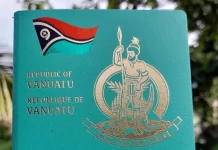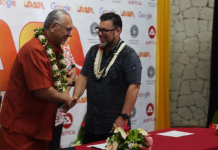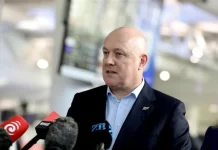The International Monetary Fund (IMF) has set up office in Papua New Guinea for the first time in 25 years and aims to work more closely with the Government.
IMF official Sohrab Rafiq said it was the first time that the fund would have a resident representative based in country.
“I hope that this goes a long way to show that IMF is looking to partner with Papua New Guinea for the long term,” he said.
Rafiq said the IMF would provide guidelines and technical assistance to the Government upon request.
“PNG is a unique country with big potential for economic growth, and IMF will continue to assist the government to achieve its development goals,” he said.
Rafiq said setting up an office in the country would allow IMF to work with the Government and state agency, the Independent Commission Against Corruption, and watchdog PNG Transparency International.
This is to ensure that the Government adheres to its goals and achieves them, he added.
Rafiq said PNG’s economy was facing challenges and needed to be navigated properly.
Meanwhile, the International Monetary Fund (IMF) programme is to assist the Papua New Guinea Government with its reforms, and will not to take away the country’s sovereignty, says country representative Sohrab Rafiq.
“The IMF is not here to steal PNG’s sovereignty. This is a misconception,” he said.
“The IMF was invited by the Government of PNG to assist with its reforms, which focus on strengthening debt sustainability, alleviating foreign exchange shortages, enhancing governance and operating the anti-corruption framework to ensure there is accountability and transparency.”
He clarified this after reports of the IMF’s programme partnership with the Government raised “red flags” at their head office in Washington DC.
He said the IMF board had approved the Government’s request for a funding of US$918 million (about K3.2 billion) under the Extended Credit Facility (ECF) and Extended Fund Facility (EFF).
The funding to support the Government’s reform agenda to protect the vulnerable and foster inclusive growth in such difficult global economic times.
“We have experiences from the 109 member countries on what to expect in these types of economic situations. And when we were asked by (the PNG) Government to assist, we knew and were optimistic that PNG can come back to a strong economy,” Rafiq said.
He said PNG’s economy was hit hard by the low global commodity prices in 2014-2020, severe drought in 2015-2016, a major earthquake in 2018, and the Coronavirus pandemic in 2020/2021.
The shocks softened economy growth and led to shortages of foreign exchanges and the buildup of public debt, he added.
Rafiq said that the medium-term outlook was positive and that there are good prospects of new investments in the resource sector, which would boost growth, export, and fiscal revenue collection.
But he warned that the PNG economy was “clustered”, meaning that it is at a high risk because of domestic and external shocks.
SOURCE: THE NATIONAL/PACNEWS














